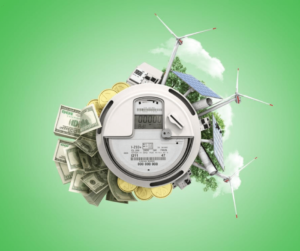Fuel Costs can affect Energy Rates . Fuel prices, especially for natural gas and petroleum fuels, increase during periods of high electricity demand and when fuel supplies are limited or disrupted due to extreme weather events. extreme, incidental damage to transportation and transportation infrastructure. Higher fuel prices can lead to higher electricity generation costs.
Factory Costs can affect energy rates. Each plant has its own funding, construction, maintenance, and operating costs.
Power transmission and distribution system: The power transmission and distribution system that connects power plants to consumers are costly to construct, operate and maintain, including repairing damage to power plants. systems due to accidents and extreme weather events and improve network security. In fact, most energy prices change hourly.
Some other factors that affect electricity rates
Economic fundamentals such as relative supply and demand are predictable, but the addition of political and regulatory factors coupled with financial speculation makes it more difficult to predict energy prices.

As one of the country’s fastest-growing energy consulting firms and a leader in energy supply in the Mid-Atlantic region, we monitor markets, analyze trends and use them daily. . This information is of your interest. Extreme temperatures can increase heating and cooling needs, and an increase in electricity demand can drive up fuel and electricity prices. Rain and snow provide water for low-cost hydroelectricity, and when wind speeds are good, wind provides low-cost electricity generation.
However, in the event of drought, competition for water resource demand, or slower wind speeds, the loss of power generated by these sources can put increased pressure on other sources/fuels and prices there. Unexpected issues, such as a global pandemic and supply chain issues, can delay the reduction of renewable energy costs. There are also other obstacles such as oil and gas subsidies, public opinion, permits, and permits.
With technological advancements, researchers and engineers are constantly striving to create energy-saving devices and tools. Energy efficiency can be defined as using less energy to produce the same amount of service or the same useful output. For example, the housing sector, the commercial sector, and the industrial sector. The formula energy efficiency can be defined as the ratio of the useful output of a process to the energy input of the process and expressed as a percentage.
In some states, public interest / public utility commissions regulate prices entirely, but in other states, there is a combination of unregulated prices (for generators) and specified prices. Despite the significant increase in shale gas production, major changes in the global oil supply could impact domestic US energy costs. Global oil and gas prices determine the relative profit a supplier can make by selling fuel domestically or internationally.
All energy prices are related to some extent. Like most other traded products, energy prices can be heavily influenced by financial speculation. This is the least transparent element of all. If the market does not seem to be moving in the direction indicated by supply and demand factors, the cause is usually financial speculation, which is barely visible and causes unexpected movements. Among these reasons, you need to decide what factors are causing you more energy rates.

